History of French-Czech Vltava Chemistry Meetings
The first "French-Czech Vltava Chemistry Meeting" was launched in Dijon in 2010, following a call of the Embassy of France in the Czech Republic in the frame of the "Vltava" exchange programme. Since then these meetings have been organised alternatively in academic institutions of the Czech Republic and France: University of Pardubice (Pardubice, 2011), University of Bourgogne (Dijon, 2012), Institute of Organic Chemistry and Biochemistry of the Czech Academy of Sciences (Prague, 2013), Institute of Chemistry of Natural Substances of the CNRS (Gif-sur-Yvette, 2014), Masaryk University (Brno, 2015), University of Orléans (Orléans, 2016), Institute of Organic Chemistry and Biochemistry of the Czech Academy of Sciences (Prague, 2017) and University of Strasbourg (Strasbourg, 2018), with continuous support from the Embassy of France and the French Institute of Prague. The 2019 edition will take place in Prague.
The aim of the "French-Czech Vltava Chemistry Meetings" is to offer French and Czech junior and senior researchers a yearly forum in molecular and supramolecular chemistry in order to reinforce existing and foster future collaborations between academic institutions of France and of the Czech Republic, and implement them i the frame of bilateral programmes, such as: Hubert Curien "Barrande" exchange Program (PHC), PhD cotutelle fellowship of the Embassy of France in the Czech Republic, International Project of Scientific Cooperation of the CNRS (PICS), Program CNRS/CAS. The meetings comprise a two-day scientific programme, usually starting on Monday, in order to allow the participants to arrive on Sunday afternoon, a welcome party being organised in the evening. They combine plenary lectures delivered by senior faculty members and oral communications delivered by graduate students of both countries. In addition, a poster session organised in a convivial atmosphere allows the participants to meet with each other and establish the first contacts.
Topics of contributions cover all aspects of molecular chemistry, and reflect the diversity of the chemistry that is performed in both countries: Organic chemistry, inorganic chemistry, coordination chemistry, organometallic chemistry, electrochemistry, photochemistry, theoretical chemistry, with applications in synthetic methodology and natural product synthesis, catalysis, molecular recognition and sensing, biochemistry, materials science, molecular electronics and photonics, and medicine (imaging and therapy).
To emphasize the long history of the fruitful French-Czech scientific cooperation, the name of Joachim Barrande, a French paleontologist who studied the fossils of central Bohemia was joined to the original name of the conference, which is since 2018 « Barrande-Vltava French Czech Chemistry Meeting ».
Joachim Barrande(11 August 1799 – 5 October 1883) |
||
|
Joachim Barrande was born at Saugues, Haute Loire, and educated in the École Polytechnique and École Nationale des Ponts et Chaussées at Paris. Although he had received the training of an engineer, his first appointment was that of tutor to the duc de Bordeaux (afterwards known as the comte de Chambord), grandson of Charles X, and when the king abdicated in 1830, Barrande accompanied the royal exiles to England and Scotland, and afterwards to Prague. Settling in Prague in 1831, he became interested in the fossils of the region, and, when he realized the striking similarity between the strata of Britain, as described by the noted British geologist Sir Roderick I. Murchison, and the strata in Bohemia, he began an intensive geological study. His primary work, Système silurien du centre de la Bohême (1852–1894), complete with excellent drawings, is still used as a reference work. In it he identified and analyzed more than 4,000 new fossil species. In recognition of his important researches the Geological Society of London in 1857 awarded to him the Wollaston medal. In 1870, he was elected a foreign member of the Royal Swedish Academy of Sciences. He was elected a Foreign Honorary Member of the American Academy of Arts and Sciences in 1875. |
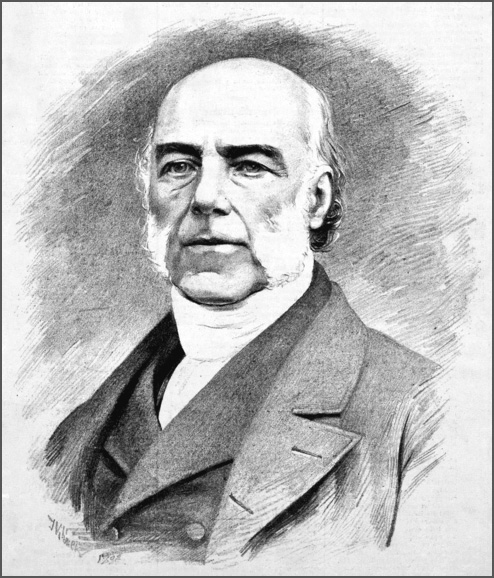
|
|
|
Barrande died at Frohsdorf on October 5, 1883. His extensive collection has been stored in National Museum in Prague on grounds of his testament. In 1884 the Barrande Rocks in Prague was named in honor of the scientist and massive plaque with Barrande's name was added at the rocks. On February 24, 1928 all district of Prague, Barrandov, was named after him... [Excerpted from Wikipedia and Encyclopædia Britannica; more on trilobit.biz] |
||
International Advisory Board
- Jean-Claude Chambron (University of Strasbourg)
- Eric Doris (CEA/University Paris-Saclay, Gif-sur-Yvette)
- Josef Hamáček (CBM CNRS Orléans/University of Orléans)
- Petr Hermann (Charles University, Prague)
- Pavel Lhoták (University of Chemistry and Technology, Prague)
- Ctibor Mazal (Masaryk University, Brno)
- Michel Meyer (University Bourgogne Franche-Comté, Dijon)
- Aleš Růžička (University of Pardubice)
- Olivier Siri (Aix-Marseille University)
- Irena G. Stará (Institute of Organic Chemistry and Biochemistry CAS, Prague)
- Serge Thorimbert (University Pierre et Marie Curie, Paris)
2010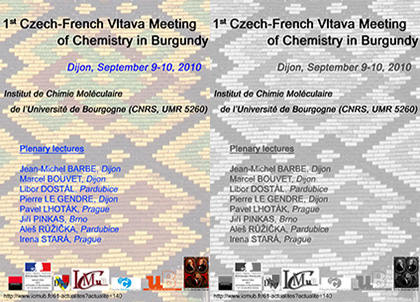
|
2011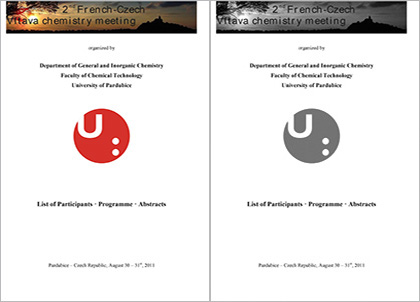
|
2012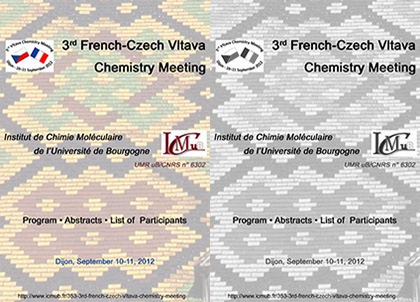
|
2013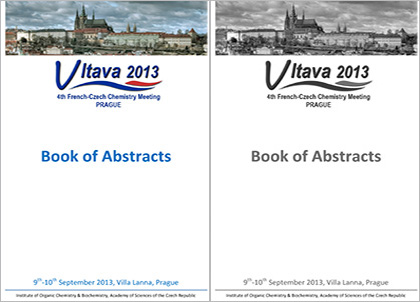
|
|||
2014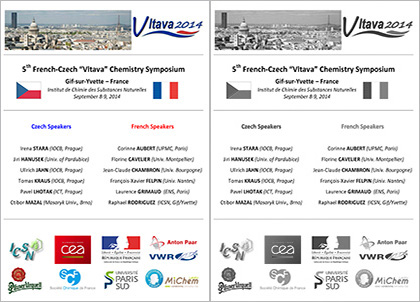
|
2015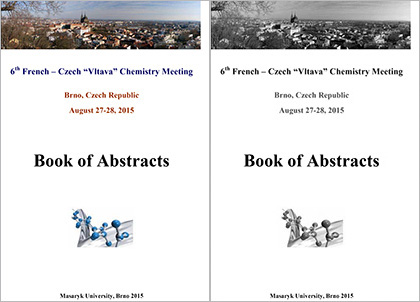
|
2016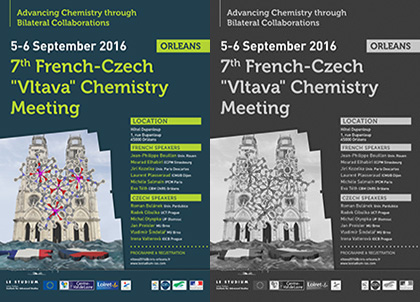
|
2017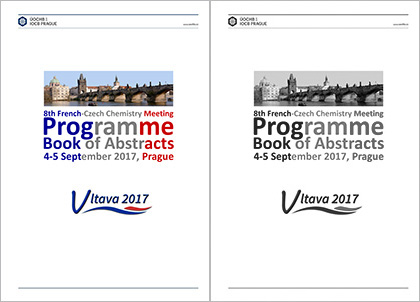
|
|||
2018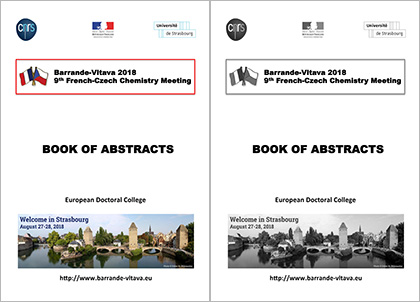
|
2019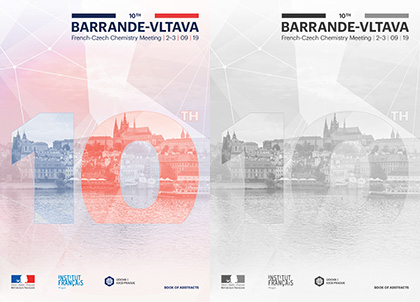
|
2022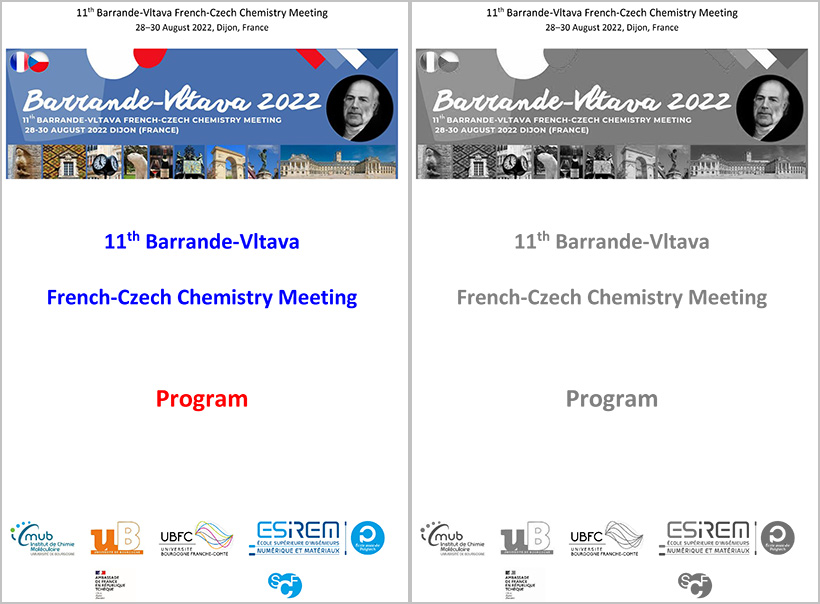
|
2023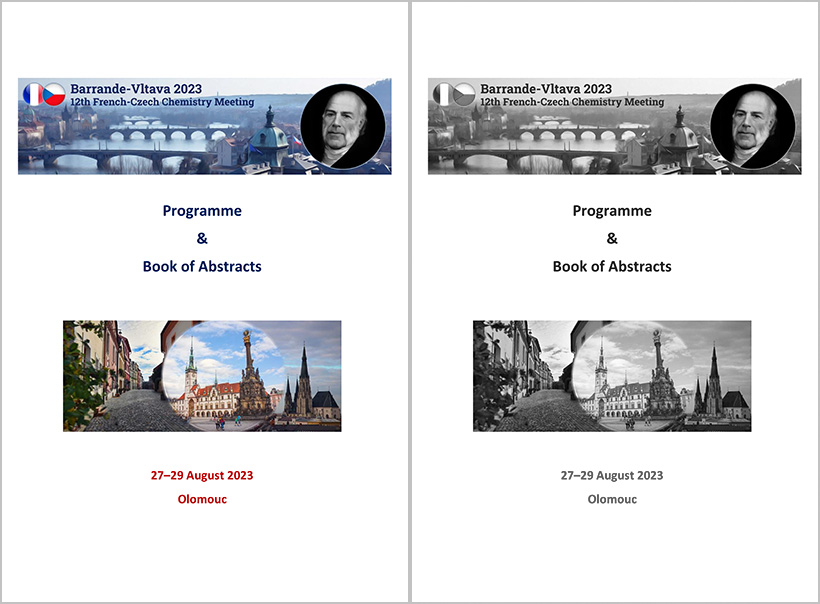
|
|||
